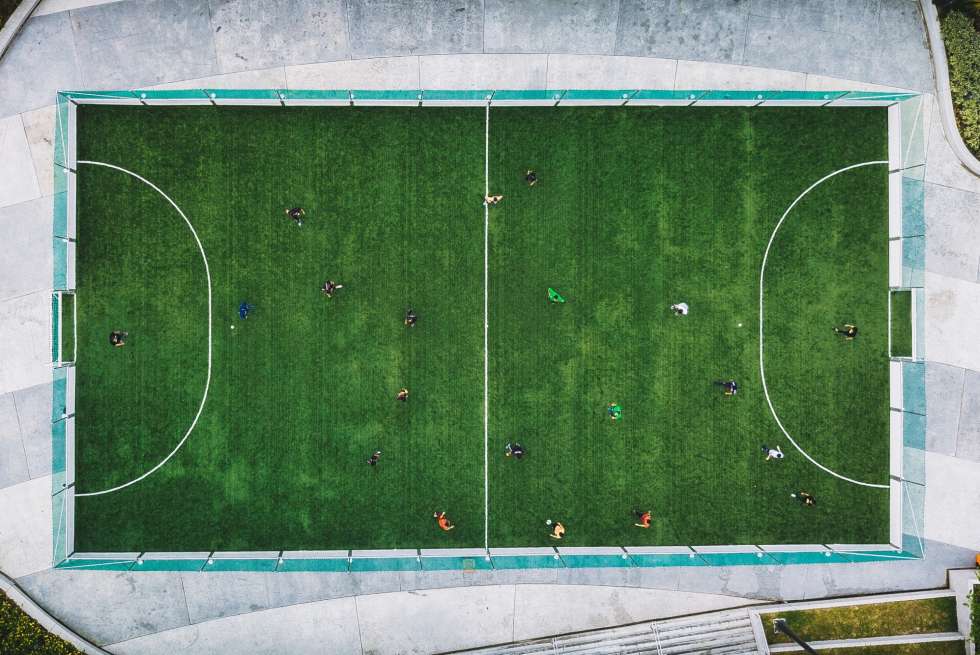Sports: Deviation
From the Series: Sport
From the Series: Sport

In the previous entries of the Field Notes series on Sports, Jasmijn Rana has provoked queries on sport, gender and embodiment by taking us into her fieldwork amongst Muslim Dutch female kickboxers, while Niko Besnier has translated Rana’s work into a wider context that includes a dynamic interconnection of class and ethnicity. As Besnier rightfully points out, sport not only disciplines the body but also reinforces existing gendered, classed and ethnic mechanisms. One of his key insights is to draw our attention to habitus, which operates over the “body capital” by making and remaking both the bodies and souls of individuals through sports. Although I have always had an anthropological and ethnographic interest and fascination by the flesh and movement of sporting body, since my duty here on this page is “deviation”, I would like to 'deviate' from the perspective of embodiment by looking at sports as an agentive desire and an imagined involvement.
As my field in Istanbul, Turkey reveals, sport can be used as a powerful tool for social change. It has been used as a mechanism in Turkey to progress towards the ideal of achieving a modern nation, as the republican ideology invested in sports and physical education for the corporeal transformation of its citizens. Unfit Eastern bodies of Turks had to be moulded into a better shape for the formation of a new civilization. Since the 1930s, Turkey has replaced European sports clubs with national ones and assigned ex-soldiers as club managers, invested in women’s participation in professional sports, and presented sporting bodies as heroic and proud objects of the new nation. “Sport fests” played an important role in the performance of the republican investment in the creation of a better-shaped generation. They are held every year on the 19th of May, accompanied by parades (Figure 2). These continuous investments built up a collective emotional memory and as a result sport has become a reflection of the desire for change.
One of the most critical things I noticed in the field during my conversations with trainers and gym owners was the way they spoke about sport as a matter of consciousness. “Spor bilinci” (sport consciousness) was the exact phrase they used. I first came across this during a conversation with Serkan Bey, the assistant director of Hamza Yerlikaya (HY). As he gave me a tour if a gym, he said, “women come here just to lose weight, but we give them sport consciousness." Considering his background as a graduate of sports management from one of the highest ranking universities in that discipline (Marmara University), he had enough of an academic background to know that fitness, pilates and step-aerobics are not categorised as sports, but rather as physical exercise. Yet, in his perspective, any form of physical exercise that is able to transform bodies is enough to raise a certain kind of cognitive awareness—about life, about the world, and about selves.
Serkan Bey was not the only one who invoke “sport consciousness.” It recurred during my fieldwork, mentioned by trainers Fatma, Öykü, Sema, Nehir, and Sinem. 47-year-old Feray Teyze, for example, worked out at HY three days a week during the winter and in Cumhuriyet Park every weekday because of this consciousness, as she was aware to invest into exercise. Similarly, 32-year-old Seda has been swimming and skiing since she was a little girl and has been proud of her consistency; now encouraging her two sons to do sport. Aware of the importance of sports for a better life, she invested into physical education of her children, along with their academics. The list continues. Often my respondents from diverse backgrounds told me how we were both “bilgili” (knowledgeable), more educated than others. In this imagination, higher education and physical education are parallel senses of knowing, as they both make you more cultivated, knowledgeable and aware of the world.
Even more interestingly, all forms of exercise—whether at home, in the park, or at the gym—were referred to as ‘spor yapmak’: “doing sport”. Even the idea of sporting had such a pivotal value in fantasizing about change that going out for a fast walk was called ‘spora gidiyorum’ (“going for sport”). These vignettes are glimpses into the ways in which sport is constructed as a desired asset, which I argue here is a product of the Turkish republican project.
Anthropology and ethnography are able to get into an individual’s worlds, including emotions, perceptions and expectations. Early Turkish Republican ideology’s investment into sport sprouted into the minds of the public, branding sport as a civilised, modern, classed and therefore a desirable act. The reason women have referred to many of their activities as sport is deeply related to particular ways of imagining, perceiving and performing exercise as a cultivating and civilizing ritual. Their attitude towards exercise is related to broader public attitudes about sport, which together with its historical and cultural connotations, influences and reflects women’s aspirations and desires.